The battle for free speech at US universities and the rise of the iceberg campus
'Free speech' vs 'safe spaces' is a battle that's causing so much division within universities that in the US it has led to the phenomenon of the 'iceberg campus' – where to discuss issues of any sensitivity means doing it in private, below the surface. At what cost, asks Joshi Herrmann?
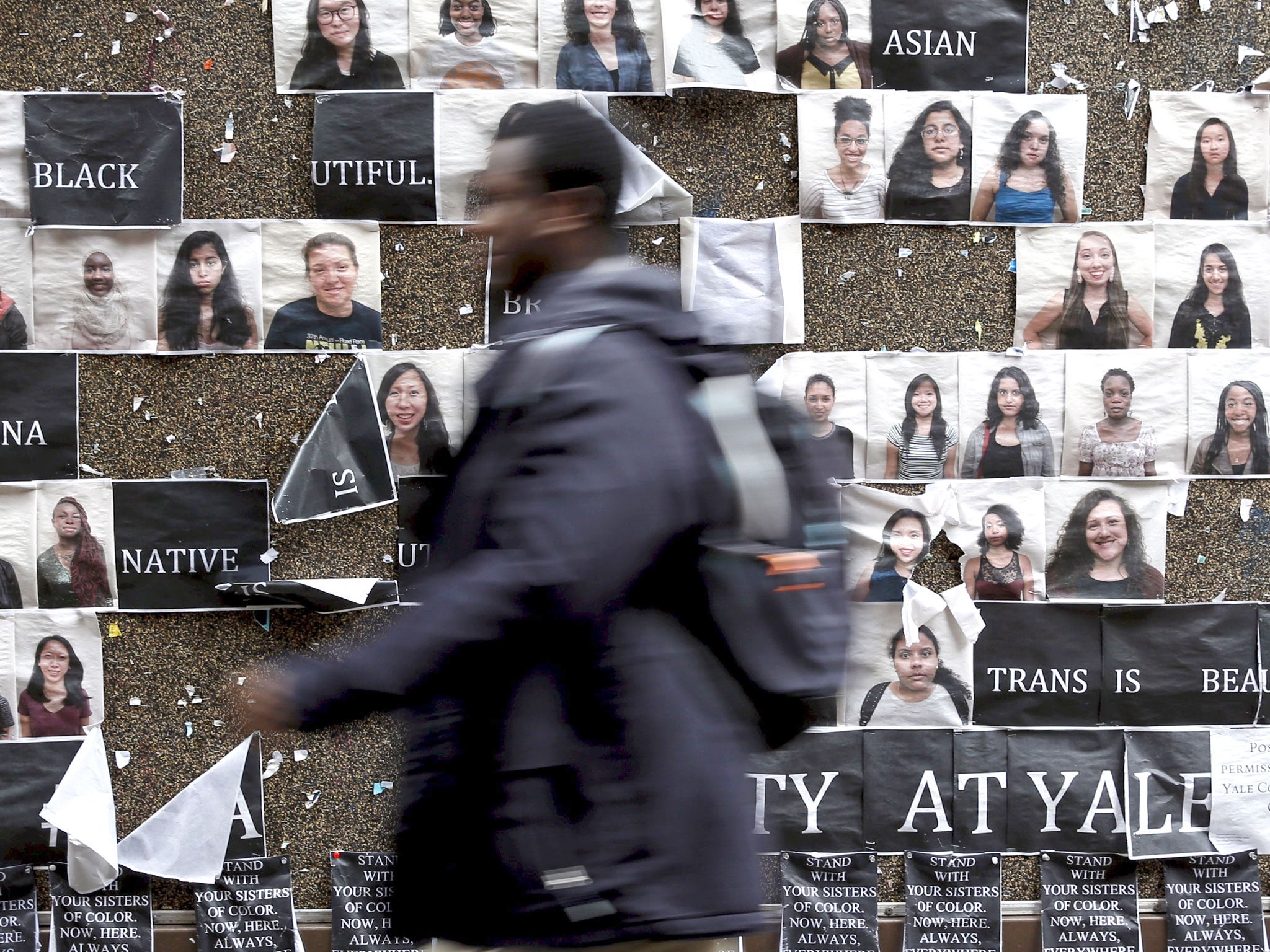
In early September, when it still felt like summer in Connecticut, and students were walking around Yale in shorts and sports club T-shirts, I was at a party in an oak-panelled living room shared by a few of the university's rowers.
The early evening heat was borderline bearable – some people were sitting back in the room's shabby sofas; some were huddling around the tiny fan by the window, drinking cans of the dilute student beer Keystone Light. Conversation switched from punishing training routines to the relative merits of Yale's fraternities, to stories about the rivalry between the university's a capella groups – a frozen deer's head had recently been dumped by one group in the practice room used by another. Nothing suggested that revolution was in the air. Nothing that came up in conversation seemed to portend what happened about two months later, in early November, when arguments about race convulsed the pretty university and had journalists jumping on the Amtrak train to New Haven.
The tightly packed Thanksgiving and Christmas holidays have since robbed the US campus protest movement of some of its momentum – student activists always know they are working against the clock. The solidarity marches and anguished public meetings that spread from college to college through November highlighted previously undisclosed feelings of suffering and outrage among black and other minority students in the US – the latest twist in the unresolved story of racism in America.
The race complaints have little parallel at British universities, where recent contention has tended to focus on arguments about gender identity and "lad culture". But the US protests have been attended by a tussle between, on the one hand, student demands for "safe spaces", and, and on the other, the principles of free expression and debate, all of which are increasingly familiar in the UK.
But attempts to ban speakers from British campuses, like the recent campaign to stop Germaine Greer from speaking at Cardiff University, look like midcard fights in comparison with the "disinvitation season" that occurs in the US.
"It boiled over at Halloween," says a Yale student who I met in the rowers' room. First, some students were upset about an email from an associate master of Silliman College, which questioned whether it was appropriate for a branch of the university's administration to advise students on offensive Halloween costumes, as had happened. Then, on Halloweekend – as college students here like to call it – a rumour (as yet unproven – an investigation is under way) spread around Yale that a group of women were turned away from a party at the university's Sigma Alpha Epsilon (SAE) frat because they weren't white.
Erika Christakis, who is also a lecturer in early development at Yale, had written in her email: "American universities were once a safe space not only for maturation but also for a certain regressive, or even transgressive, experience; increasingly, it seems, they have become places of censure and prohibition." Not long after, a female black student was recorded on video screaming at Christakis's husband, Nicholas, the master of Silliman College and a respected sociologist.
In the exchange the master tells the student that he disagrees with her. She responds by screaming: "THEN STEP DOWN. IF THAT IS WHAT YOU THINK ABOUT BEING MASTER YOU SHOULD STEP DOWN. IT IS NOT ABOUT CREATING AN INTELLECTUAL SPACE. IT IS NOT, DO YOU UNDERSTAND THAT? IT IS ABOUT CREATING A HOME HERE." She finishes by telling him: "You are disgusting." At one point another student can be heard saying: "He doesn't deserve to be listened to."
That happened in the first week of November. Within days of the exchange at Yale, protesters at the University of Missouri forced the resignation of their president after he was adjudged to be unresponsive to a series of alleged racist incidents. Soon students at college after college wore all-black and held "Stand with Mizzou" placards at solidarity rallies, pointing out the presence of racism in their own back yards at the same time. When President Barack Obama was asked to comment on the events on US campuses in a television interview in mid-November, it was striking that the thrust of his answer concerned the tone of the protests. After praising the Missouri protesters, he said that he tells his daughters, one of whom – Malia – has been touring college campuses recently, that "part of your ability to bring about change is going to be by engagement and understanding the viewpoints and the arguments of the other side. And so when I hear, for example, you know, folks on college campuses saying, 'We're not going to allow somebody to speak on our campus because we disagree with their ideas or we feel threatened by their ideas' —you know, I think that's a recipe for dogmatism."
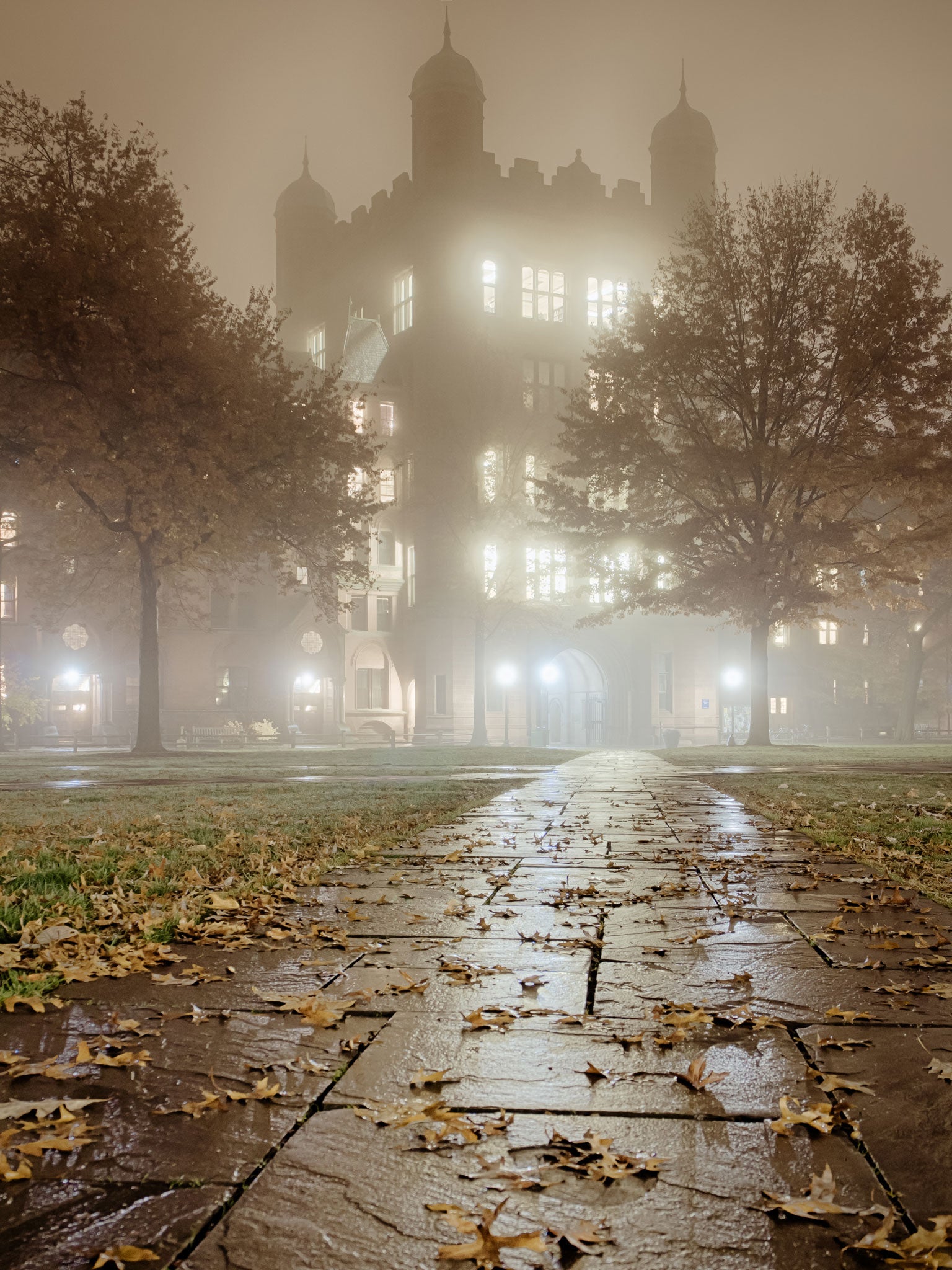
Obama didn't specify which outburst of student censoriousness he meant, but it is possible to guess. The Yale video confirmed some commentators' worst fears about the renewed flourishing of a militant interpretation of political correctness on campuses, with its accompanying tendency to treat opposing views as illegitimate and their holders as deserving of speaking bans and sackings.
That trend is familiar in the UK, where earlier this year the comedian Kate Smurthwaite had a gig at Goldsmiths University cancelled at the last minute because some students planned to picket the event to protest against her views on the decriminalisation of prostitution, which she was told would likely breach Goldsmiths' "safe space policy". The same reason – in this case as a result of her views on transgender women – was cited for banning the feminist writer Julie Bindel from appearing at a debate at Manchester University in October.
Causing intellectual irritation to middle-aged adults – be they liberal magazine columnists or the president of the United States – shouldn't be a factor that stops too many students in their tracks. More significant, perhaps, is how the present atmosphere on campuses seems to be accelerating the segmentation of university life, as different groups withdraw from the public realm and carry on their conversations and lives with students similar to themselves. This trend has come up time and again in my conversations with American students in the past two months.
What they describe are "iceberg campuses" – where an increasingly significant proportion of what students really think is hidden from public view, expressed only in private spaces between friends and on group chats with like-minded peers – in the real "safe spaces". Apps like Facebook Messenger and GroupMe allow students to limit certain jokes, words and views only to precise audiences who they know won't object to them.
One recent graduate from an Ivy League school describes how his fellow students learned to only speak frankly on group chats and behind the doors of their frat. "Life on campus is becoming more insular," he says.
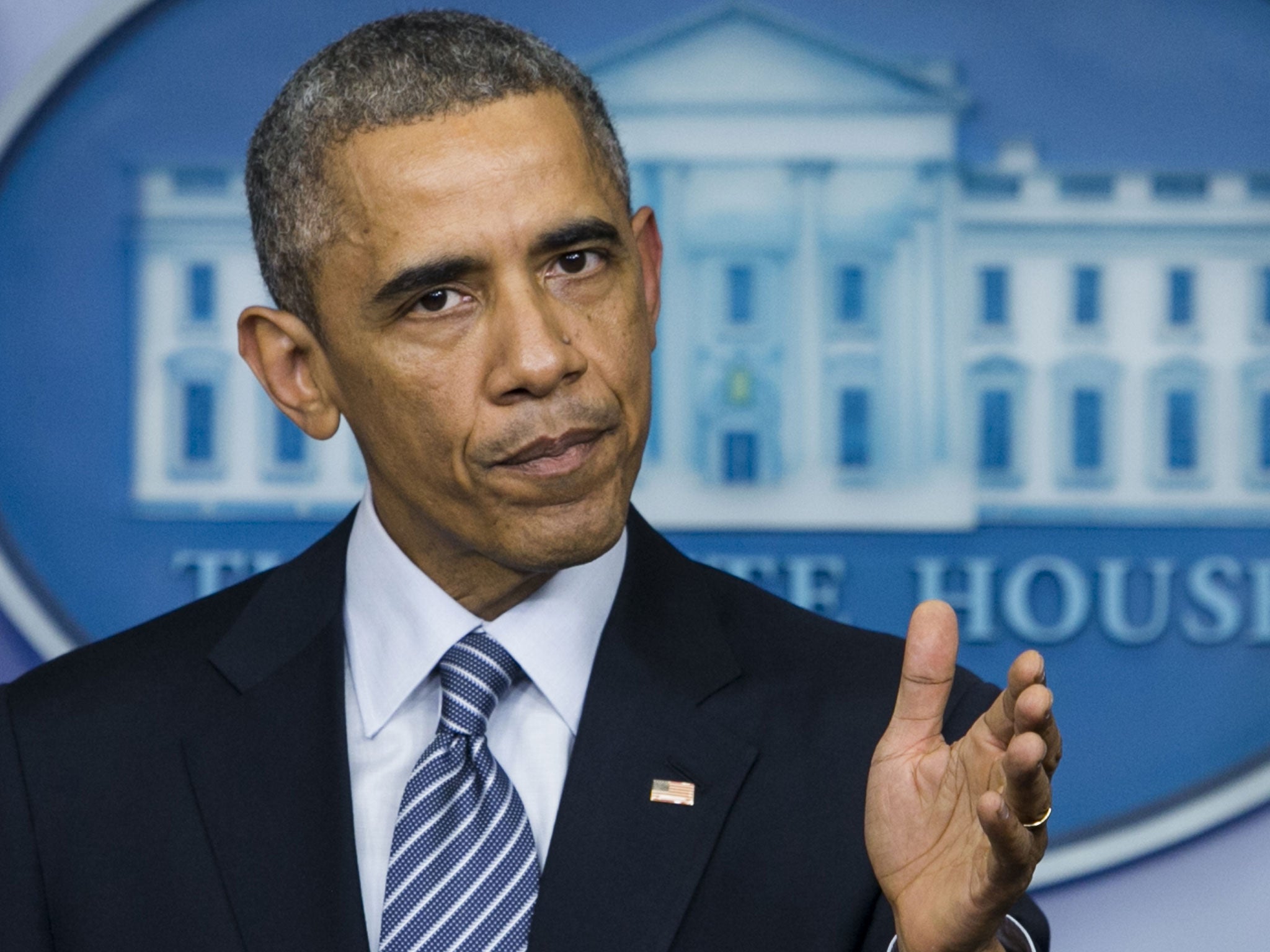
American campus life already looks like an iceberg when it comes to socialising: the minimum drinking age of 21 has created a strikingly elaborate infrastructure of private partying, including fraternities and sororities, or eating clubs at Princeton and Finals Clubs at Harvard. How worried should we be be that the same trend of fragmentation and secession from the shared and the public seems to be happening with expression too?
I am the executive editor of The Tab, a youth media network that stretches across 23 US colleges. In early November Emily Reinwald, a Junior at Yale who majors in Latin American Area studies wrote a piece for The Tab saying: "At Yale right now, it feels like you cannot stand for free speech while also standing against racism."
I asked her what life is like on campus in an atmosphere of extreme sensitivity. "I think a lot of people are just keeping their views to themselves, and in private conversations with their friends, because they fear the backlash," she says. "And as much as anyone has a right to rant and to call you an asshole, people just want to avoid that. I don't think anything should be done > I don't think steps should be taken against her [the girl in the Christakis video]. But it has really affected the conversation on campus."
Reinwald said the protesters' demand for "the immediate removal of Nicholas and Erika Christakis" had alienated many fellow students who abhor racism and support their peers who are fighting it at Yale. She adds: "People are holding back from standing up for SAE, or from saying that what happened is currently just hearsay, because anyone saying it is hearsay has been called a racist."
The places where the drama of free speech at Yale – and at other universities – often plays out is student Facebook groups like "Overheard at Yale" or "Microaggressions at Yale", which require a university email to join. They are a kind of middle ground between the private and the public, but they also show the student body what the stakes are for speaking up.
"At lot of the time it just goes down to a couple of people on this side and a couple of people on that side going at each other, all caps, often arguing about word choice," says Reinwald. "People see those conversations and definitely go, it is not worth it to even talk about this." She adds: "If we don't have conversations in public, and people are afraid to engage in public, then we are not going to make any sort of progress."
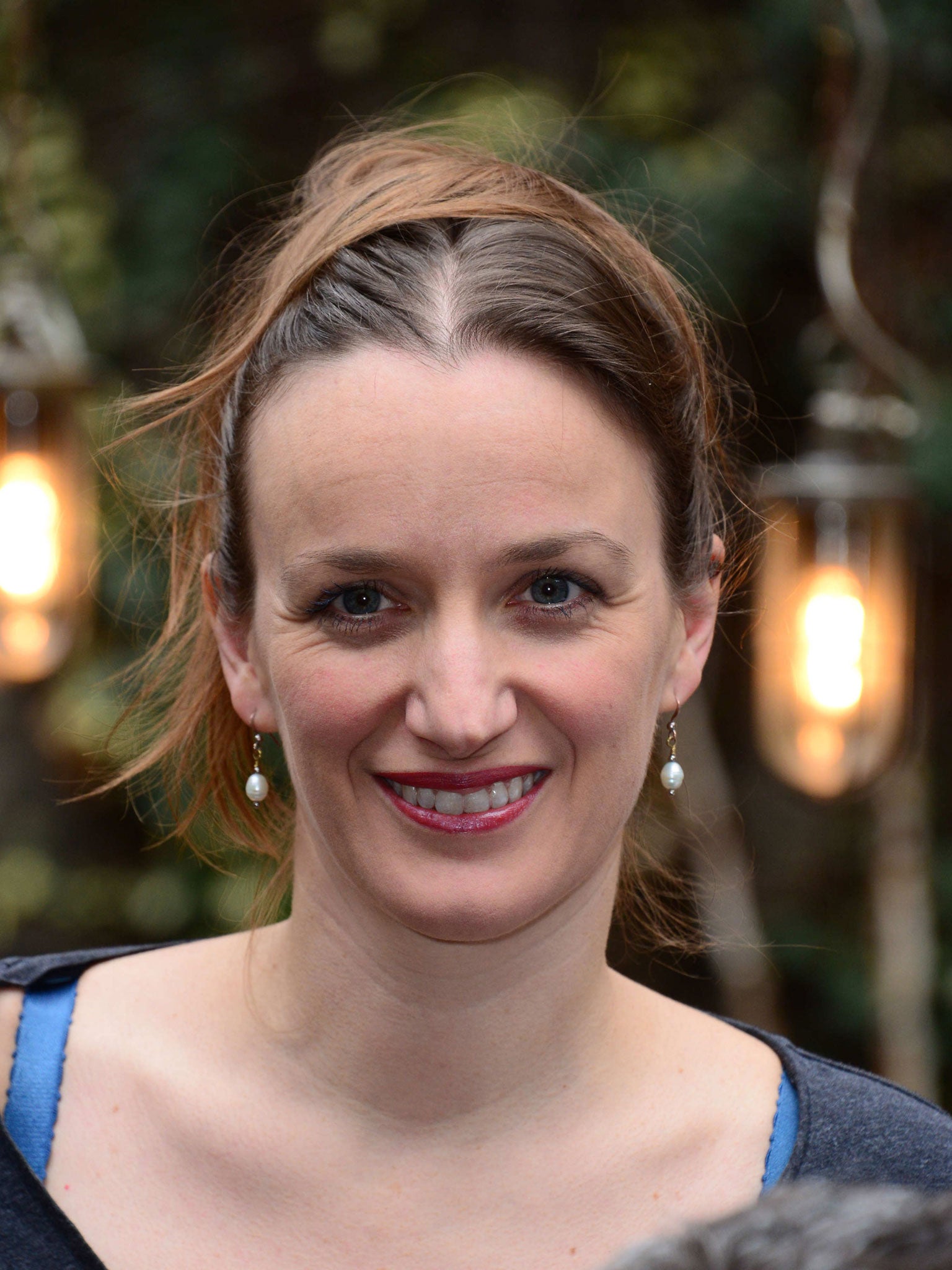
"It's a mess," said a Yale academic I contacted, who did not want to be identified for this piece. The academic said in passing that they were worried about the increasing separateness being sought by students – another major factor in the development of iceberg campuses. "I think the increasing rise of 'cultural houses' on campus and calls for separate spaces and services for mental health care, separate graduation ceremonies, and whatnot is a double-edged sword that may be very counterproductive."
Among the Yale protesters' demands was the funding of "mental health programmes for the black community and other communities of colour that are specifically funded and specific to our experiences." Within days, the Black Justice League at Princeton began a sit-in to demand – among other things – the provision of "affinity housing for those interested in black culture". The university agreed to look into the viability of such housing and agreed to designate four rooms for the use of cultural affinity groups. At New York University protesters have demanded that an entire floor be "entirely dedicated to students of colour, and another for queer students on campus".
Todd Gitlin, a professor of journalism and sociology at Columbia University and a key student organiser in the 1960s, used a recent column in The New York Times to point out the current protest movement's "widespread and bristling feeling of acute vulnerability followed by attacks on those who disagree". He wrote: "To a veteran of movements of the Sixties like myself, this is strikingly strange." When asked what the trends he identified might lead to, he says he senses a "retreat from the public domain". He points out that the sit-in movement – which he describes as "the high watermark of that kind of 'Let's think aloud together in a John Stuart Mill sense'" – used to invite state department officials to come and argue for the war with activists – a time when it was the right who wanted to censor speakers from campuses, not the left. "I don't know if the students who are retrenching know that they are doing something that happened before," he says, referring to a the identity politics of the late Eighties and early Nineties. Now, Gitlin says, students who seek bespoke college experiences are being given what they want. "The universities now are shopping mall universities – students are customers, and the idea is to please the customers. So if the customers are pleased with segmentation, then fine."
To write off demands for safe spaces as students being demanding or overly sensitive – as some have done – is to efface a serious component of the debate. When some of those involved in Dartmouth's "blackout" were asked to talk at length about the issues they were facing on campus, one of them said: "What many people do not realise is that our classmates and friends are suffering in this institution: every day they feel the pain of not feeling important and acknowledged." The student noted that on campuses like Missouri trolls and racists have used Yik Yak – an app that allows people to post anonymous messages and is incredibly popular at US colleges – to post death threats and abuse.
As Emily Reinwald points out, the chilling of public debate can work both ways. She says she has friends in the protest movement who hold back their views too, fearing personal abuse on internet forums like 4chan.
"It is really hard to understand the perspective of people of colour at universities, so I would never challenge their experiences," says Charlie Lundquist, who reported on the protest at Dartmouth, where he is a junior. "But I would also respect the experience of the dean who sent that email." Whereas Reinwald is a conservative, Lundquist has an impeccable liberal CV, having attended Occupy marches in Oakland as a teenager and led a weekly discussion group at Dartmouth about intersectional identity. He wrote on Dartmouth's Tab that he was proud to take part in the blackout, but left it before the end after feeling uncomfortable when protesters entered the library and began to chant at students who had chosen to revise for their exams. After apparently making one of the girls in the library cry, a protester yelled "Fuck your white tears."
Within days Lundquist's story had gained national attention, and when he appeared on Fox News he stood up for the protesters. When we speak for this article, he tells me: "I do appreciate what they [the protesters] are doing, but I question the specifics of how it is going down. There is a lack of dialogue. I am a very liberal person, but even some of the things they [campus activists] say astonishes me – looking for injustice at every path, and then screaming and yelling about it." He characterises the discourse as "This is the reality, and you cannot disagree with me, and I am right.
"I've been in a sociology class and you say something that people say is offensive, and they will roast on you," adds Lundquist. "You might say transgendered, and they tell you that you are using the wrong word, and they won't drop it. A girl screamed at me for the whole class, after I said a Nicki Minaj video was a bit stupid, whereas she said it was empowering. And she was pretty aggressively mad."
I ask him how he thought that atmosphere was affecting how people choose to live their lives on campus. "There is an argument that people are nervous that anything they say or do might be misunderstood and people will start yelling at them," he says. "People don't say those things in public – they say them in their small friend-groups. You always have to watch your language – it is understandable but to a certain extent it is ridiculous, and I think there are bigger fish to fry in terms of injustices." Expanding on the question of segmentation on campus, Lundquist adds: "I think it is important to have group dialogues. The fact people feel like that, leads to even more offensive things being said privately."
Which sounds like the heart of the matter. The incident in the library at Dartmouth reminded me of a Joan Didion line about New York City in the Seventies, where "the absence of opinion was construed as opinion". Students who stay quiet on big issues for fear of getting it wrong or because their views aren't orthodox are not aiding progress if their fellow students take their silence as a sign of tacit support for racism or transphobia. And who will be served if growing numbers of students decide to air their real views only to like-minded groups of friends behind closed doors or on group-chats? If their views recede and multiply in private forums and spaces? As a recent graduate from Boston College said when we discussed the phenomenon of segmentation recently: "That iceberg quality limits the sphere of dialogue and intellectual growth.
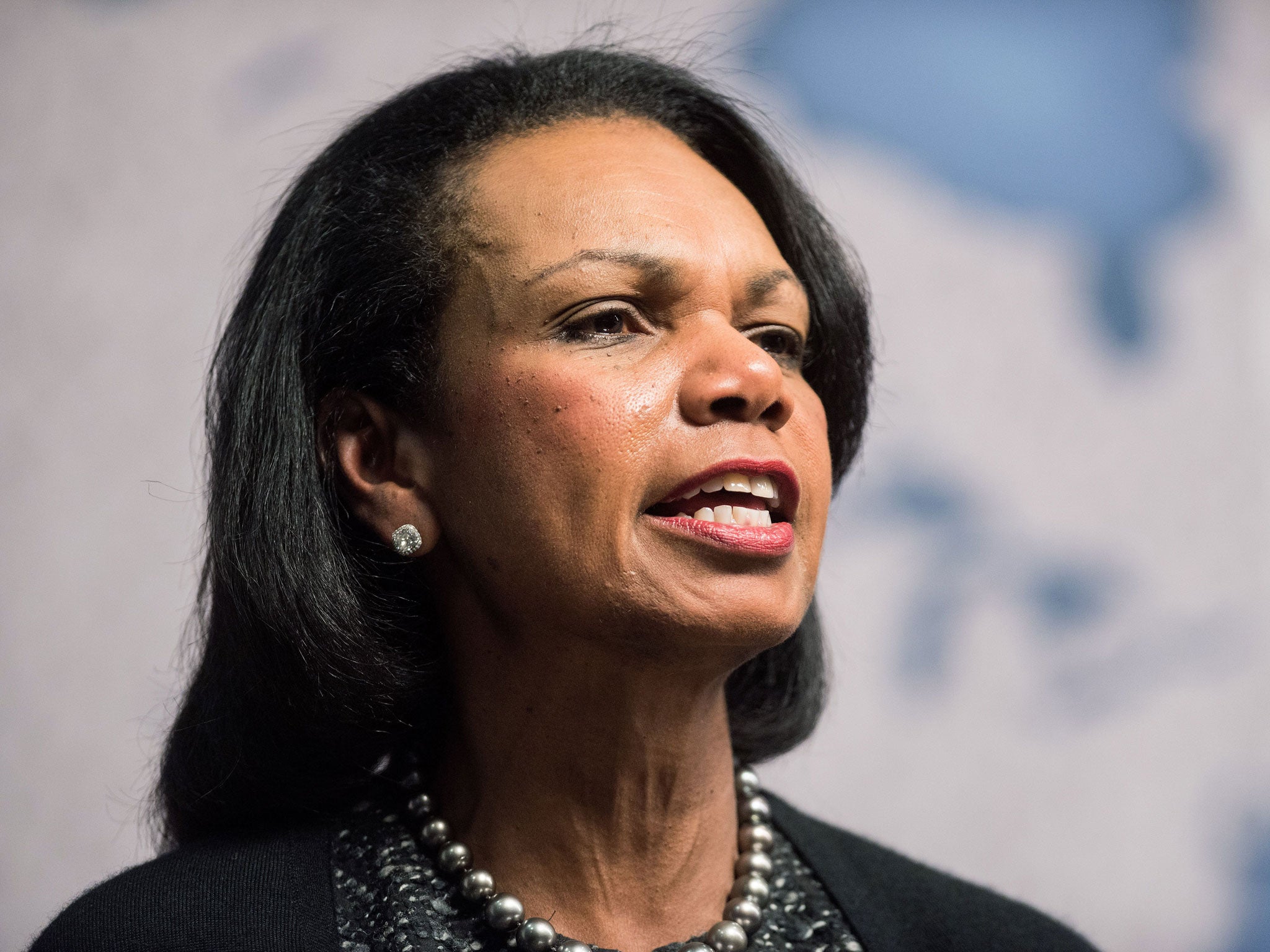
Karen Ruiz, senior at Rutgers University in New Jersey, says many students disagreed with the campaign to disinvite Condoleezza Rice from the college's commencement ceremony last year, but most said so only privately. At Harvard, James Duncan, also a senior, says the increasing introduction into debates and disagreements on campus of the language of emotional distress makes important issues hard to talk about. "When you have people saying they are personally upset – that argument is hard to bust through. There is no effective answer to that."
Should university be a safe space that protects students from the unpleasantness they will meet when they graduate, or a space to learn social norms as an adult, to test social boundaries without losing your job or being arrested, to learn to be an engaged citizen, to experience strong disagreements while still having to live and eat together? As Todd Gitlin puts it: "The ideal of the liberal university is that the distillation of thought creates a fibre of broadmindedness that is constructive for the larger society." He goes on: "It bothers me that now it is so easy to compose reasons – some of which might look decent, in the short term – to secede."
Some of the Iceberg effect is created by the atmosphere that prevails on some campuses now – a climate of anonymous threats on one the one hand and trigger-happy accusations of bigotry on the other. But also contributing is the prioritisation of safe spaces and the comfort of students over having things out in public and creating a social space that privileges multivocality and rigorous debate. It shouldn't be left to libertarian bloggers to point out that free speech is special because it is the freedom which has provided a springboard from which to win all others, including female suffrage, gay liberation and – as Obama pointed out in that interview – civil rights. It seems historically short-sighted to let it be one of the things students are willing to compromise on.
What is visible at the tip of the iceberg tends to be the extremes. As a friend who graduated from the University of Virginia puts it, the only people willing to stick their head above the parapet at some colleges at the moment are either the frat boys stupid and reckless enough to hang borderline-offensive banners from their windows (as happened at one college in September) or the activists who call for fraternities to be banned on account of their supposed contribution to so-called "rape culture". "No one really knows what everyone in the middle thinks," she says.
In one sense what is happening isn't the fault of students at all. As a columnist for Vox pointed out, universities can't complain about students demanding spa-like peace of mind – a "home for us" rather than an intellectual space, as the Yale student in the video demands – if that is how they advertise their services in glossy brochures. If you want students to know that university is a challenging broth of different people with different views, where you will be challenged and offended and sometimes tossed from pillar to post, you have to tell them that. The reason they don't is competition. The students who matriculated at UK universities this year are too young to remember the bitter battle over top-up-fees in the early years of New Labour, and have grown up knowing they would go to university as highly paying customers. In that respect, they are many years behind their American counterparts, but who would be surprised if a similar mindset took hold? That is where we may find ourselves when this trip ends.
Recently I asked one of the rowers I had met in the grand living room what he made of the goings-on at Yale. He said he cares about the issue, but, quite understandably, didn't want to be quoted – a point he made repeatedly – and said he doesn't usually express his opinions publicly, even to his friends on Facebook.
To adapt something the columnist Michelle Goldberg said about writers earlier this year, the distance between what students say to each other and what they say publicly is growing. That's not oppression, but it is a loss.
Join our commenting forum
Join thought-provoking conversations, follow other Independent readers and see their replies
Comments